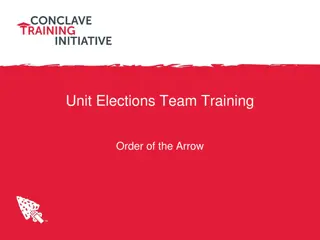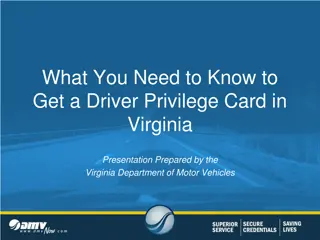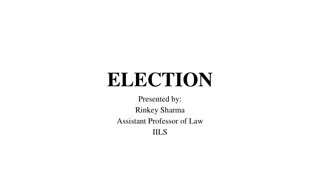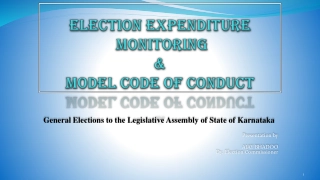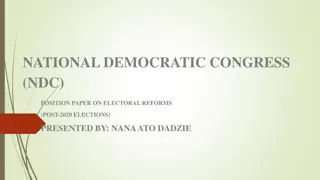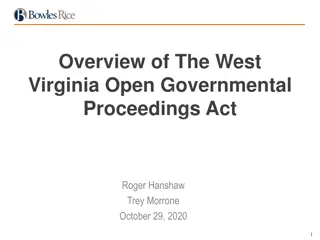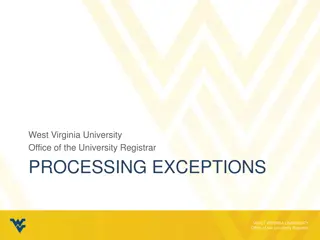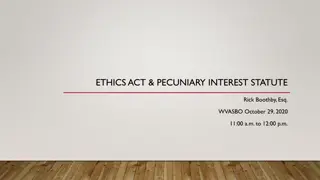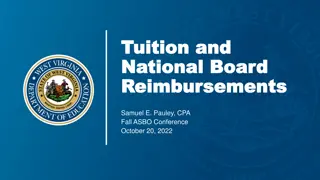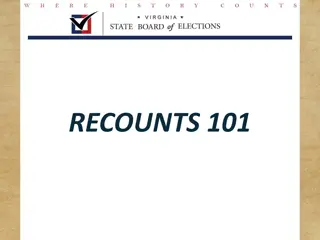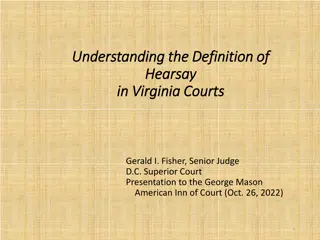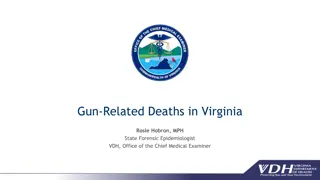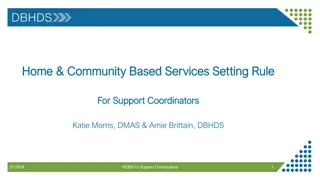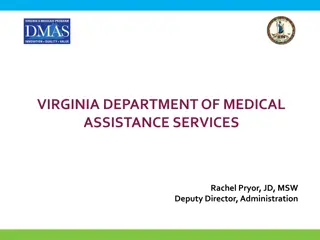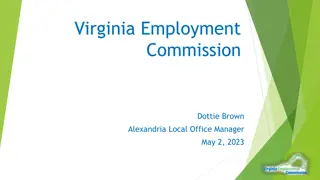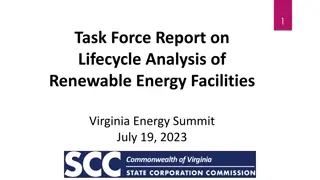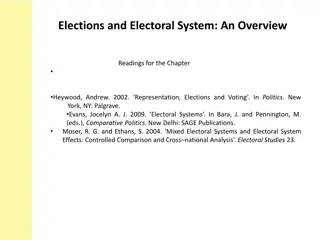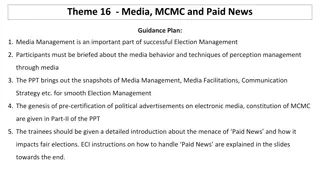Understanding Elections in West Virginia
Learn about types of elections, voting requirements, absentee voting, primary elections, general elections, and other types of elections in West Virginia. Discover how to participate in the electoral process and make your voice heard.
Download Presentation

Please find below an Image/Link to download the presentation.
The content on the website is provided AS IS for your information and personal use only. It may not be sold, licensed, or shared on other websites without obtaining consent from the author. Download presentation by click this link. If you encounter any issues during the download, it is possible that the publisher has removed the file from their server.
E N D
Presentation Transcript
Voting Requirements Did you know not everyone can vote? There are four general requirements to vote in elections in West Virginia? 1. United State Citizen 2. Resident of West Virginia and of the county/city 3 At least 18 years old before the next general election
Absentee Voting Did you know there are ways to vote when you are not going to be home during an election? West Virginia has made it easier for those citizens such as military personnel and traveling workers. Absentee Ballot- For many years people who knew they could not be present election day could ask for an absentee ballot. They are mailed to the voter and then mailed back to be counted. No Excuse Absentee- Since 2002, West Virginia allows voters to vote at the county courthouse beginning 13 days before the election for 10 days.
Primary Elections Primary elections are held the second Tuesday in May in every even numbered year in West Virginia. A primary election the candidate that wins the majority of votes cast in the primary election becomes that political party s (Republican, Democrat, and Mountain in West Virginia) nominee for that office in the general election. A person must vote for their party s primary. If no political party is chosen, a person may vote in any party s primary. For example, if you are a Republican, you will vote in the Republican primary. If you are independent, you can choose to vote in the Republican, Democrat, or Independent primary.
2016 West Virginia Presidential primary results Democratic Primary Republican Primary
General Elections A general election is held to determine who will hold a particular office. The candidate that gets the most votes wins that election. Generally it is a Republican vs. Democrat. Sometimes a third party or independent candidate can run. Unlike the primary election if you are a Republican, you can vote for the Democrat or vise-versa.
2016 Presidential General Election (for 5 electoral college votes)
Other Types of Elections In nonpartisan elections like mayor (in some towns), school board, West Virginia Supreme Court of Appeals, the candidates do not have to identify themselves with a political party. Special Elections are held to replace elected officials that have died, resigned, or were removed from office. Levy elections are held to ask taxpayers to support special funding for a particular service such as schools or public transportation.
Guided Questions What are the 3 requirements to vote in West Virginia? Why are there requirements to vote? What is the purpose of a primary election? Who won the Democratic and Republican primary elections in West Virginia? Did they win the nomination nationally? What is the purpose of a general election? What President won West Virginia s five electoral votes in the Presidential election of 2016? Besides primary and general elections, what types of elections do we see in West Virginia?


